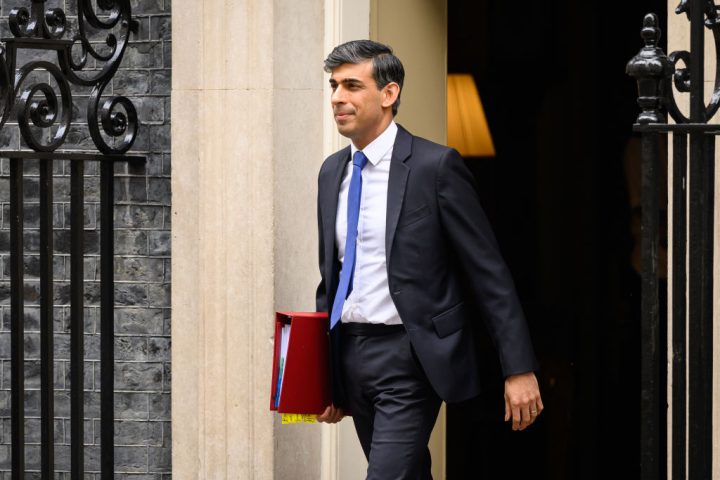Rishi Sunak will have been grateful to have got through Prime Minister’s Questions today with little criticism – at least from his own side. The session opened with a loyal planted question on the inflation figures, which allowed Sunak to tell the Commons that ‘our plan is working’ and underline that this was the steepest fall since the 1980s.
Once that was over, the session then descended into a pretty run-of-the-mill grudge match between Sunak and Keir Starmer, with the latter listing things that weren’t working and asking why the Prime Minister wasn’t calling an election. Sunak’s responses contained some minor developments in his attacks on Starmer for defending Hizb ut-Tahrir. Other than that, though, you could have placed this session at any point over the past three months and not been sure what date it was. The same may well prove true for the next three months too.
Sunak can go off to recess feeling less damaged by today’s exchanges than he normally does
The Labour leader’s first question ran thus: ‘Violent prisoners released early because the Tories wrecked the criminal justice system. Three and a half thousand small boat arrivals already this year because the Tories lost control of the borders. The NHS struggling to see people because the Tories broke it. Millions paying more for their mortgages, a budget that hit pensioners, a £46 billion hole in his sums. Why is the Prime Minister so scared to call an election?’
Interestingly, Sunak decided to engage with the question, telling the Chamber that ‘as I said in January, my working assumption is that the election will be in the second half of this year’. Perhaps the Prime Minister does not want there to be any purchase for the argument that he is running scared of the polls. It also allowed him to joke that Starmer should be grateful ‘because he’s now actually got time to come up with a plan’.
Starmer then zoomed in on some of those issues that he had listed initially, including Rwanda, which he asked three questions on. In the first, he and Sunak traded statistics about whether the plan to crack down on illegal immigration was working or not. In the second, Starmer accused Sunak of not believing in the Rwanda policy, adding: ‘He tried to stop funding it but he is now so diminished that his entire focus is stopping his MPs holding the sword of Damocles above his head – literally in the case of the Leader of the House.’ This was a reference to the chatter about Penny Mordaunt replacing Sunak. While the coronation sword bearer herself tried to look solemn on the front bench, chief whip Simon Hart couldn’t contain himself, and sat giggling about the joke for a good while.
Sunak then made a weird accusation against Starmer, which was that ‘if it was up to him, those criminals would still be out on our streets: and the truth is that if he wasn’t the Labour leader, he’d still want to be their lawyer’. It was a reference to the Labour party’s position on illegal migration policy, but it allowed the Labour leader to remind anyone who had briefly forgotten that he had in fact been director of public prosecutions and was in fact responsible for quite a few people being in prison. What Sunak was also trying to remind people of, which he did more clearly in his next answer, was that Starmer had defended Hizb ut-Tahrir and that this meant he wasn’t on the side of the British people.
Sunak clearly thinks that this Hizb it-Tahrir line is working with voters, as he brings it up every week. But it is quite troubling, because it suggests that the Conservatives do not believe that justice can only be properly served when both parties in court have the best representation available to them. Given the impact of legal aid cuts over the past decade, as well as a much longer-standing inequality of arms for many people who find themselves going through inquests or inquiries, you might be forgiven for thinking that the Tories just aren’t bothered about this principle at all.
Sunak can go off to his non-election campaigning recess feeling less damaged by today’s exchanges than he normally does. And voters can continue to feel entirely in the dark about some of the decisions that will affect them most. It was left to SNP Westminster leader Stephen Flynn to raise the Institute for Fiscal Studies’ warning that there was a ‘conspiracy of silence’ between the Labour and Conservative parties over the scale of public spending cuts, tax rises or higher borrowing necessary after the next election. Perhaps that’s why Sunak and Starmer have ended up saying the same things to each other for an entire term now.







Comments